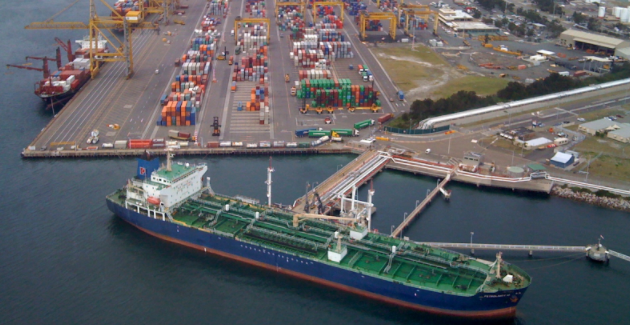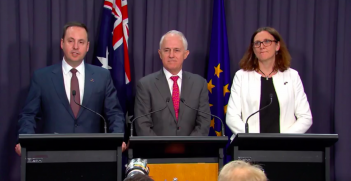Trade and Investment between the EU and Australia

A comprehensive free trade agreement between Australia and the EU would not only boost trade and economic opportunities for Australian businesses but also help develop solutions to shared industrial and societal challenges.
Australia’s economic relationship with the European Union is strong and dynamic. Two-way trade in goods and services totals more than $95 billion, making the EU Australia’s second largest trade partner behind China, and ahead of both the United States ($69 billion) and Japan ($60 billion). Services trade is a considerable and rapidly growing component of this, amounting to $30 billion annually. Underpinning this relationship is a vast two-way investment partnership, having grown from $585 billion in 2004 to nearly $1.6 trillion today, confirming the EU as Australia’s most significant investor.
Despite this positive record, the architecture for the economic relationship is underdeveloped and is critically missing a free trade agreement (FTA). Obviously, the EU and Australia are like-minded partners with strong cultural, historical and political linkages. We share common values and respect for human rights, democracy, the rule of law, the strength of international institutions, and the mutual benefits of free and open trade. Australia has or is negotiating FTAs with all of its major trade partners: the US, China, Japan, South Korea, India, Indonesia—and an FTA with the EU has crucially been the missing link.
The EU’s recently concluded FTA with Canada, CETA, could easily serve as a template for such an agreement with Australia and would allow a similarly comprehensive agreement to be locked in for the mutual benefits of both partners. Given the momentum behind forces seeking to wind back the clock on global trade, an accelerated agreement would be a powerful reaffirmation by two like-minded partners of the benefits of open trade and the positive economic benefits which it undeniably generates.
The surge of protectionist and nationalist forces must be met with conclusive counterarguments making the case for how consumers overall, not just a privileged few, benefit from access to cheaper and better quality goods and services, and technological advancements which use fewer resources and produce better outcomes. Such goods and services are also inputs in an increasingly integrated global economy, allowing domestic businesses to compete in markets around the world.
By removing trade barriers and facilitating investment flows, FTAs boost the competitiveness of exporters which flows into the creation of new businesses and jobs. Progressive trade policies also provide opportunities for growth of less-developed economies, providing access to markets whilst at the same time encouraging capacity-building reform. FTAs enhance regional economic integration and build shared approaches to trade and investment.
An Australia-EU FTA would help the relationship achieve its full potential. An ambitious and comprehensive agreement will help dismantle trade barriers (including behind-the-border barriers) and improve market access for both sides, including agricultural products. European firms will be on a level playing field with Australia’s Asian FTA partners in relation to foreign investment approvals, and mechanisms will be developed for ongoing cooperation on fast-growing services trade.
An ambitious agreement would lay the foundations for mutual recognition of professional qualifications as well as labour mobility, especially for particular skilled workers. It would also reduce significant regulatory burdens faced by companies and individuals alike by adopting common or mutually recognised standards (for instance, rules of origin, border control, and biosecurity measures).
A comprehensive Australia-EU FTA should aim to enhance cooperation in areas beyond the scope of traditional trade and investment agreements, to help both parties develop solutions to shared industrial and societal challenges, including the future of manufacturing, energy and climate change, defence and security, healthcare, transport, infrastructure, the digital economy, intellectual property and many others.
Two like-minded partners, Australia and the EU are both open economies whose prosperity is fundamentally linked to the global trading system. As noted by the World Bank, trade constitutes more than 41 per cent of Australia’s GDP, while it amounts to 83 per cent of the EU’s GDP. Europe’s market of 500 million middle class consumers presents enormous opportunities for Australian companies to export high-quality goods and services abroad, whilst Australia’s economic growth and integration with Asia, the fastest growing region in the world, makes it an obvious strategic partner for Europe.
A great opportunity is there to be realised. Let us move quickly to achieve it.
The Hon Nick Greiner AC is the chairman of the European-Australia Business Council and a member of the Board of Governors, Committee for Economic Development of Australia (CEDA). He was premier and treasurer of New South Wales from 1988–1992. He is a member of the Multi-Stakeholder Steering Committee of the EU-Australia Leadership Forum.
This article originally appeared in The EU and Australia: Shared Opportunities and Common Challenges, published on the occasion of the inaugural EU-Australia Senior and Emerging Leaders’ Forums in Sydney on 2–6 June 2017. The AIIA is part of the international consortium selected to deliver the EU-Australia Leadership Forum project, a three-year initiative funded by the EU.





